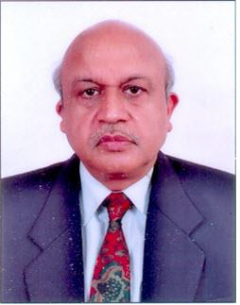Past Event! Note: this event has already taken place.
Ethics in Governance – Managing Individuals, Corporates and Communities
September 1, 2016 at 2:00 PM to 4:00 PM
| Location: | Canada-India Centre Board Room Richcraft Hall |
| Cost: | Free |
 A former senior Indian bureaucrat, Mr. Ashoka Rastogi, will give a talk on “Ethics in Governance”. Mr. Rastogi was a Secretary in the Government of India when he retired in 2005.
A former senior Indian bureaucrat, Mr. Ashoka Rastogi, will give a talk on “Ethics in Governance”. Mr. Rastogi was a Secretary in the Government of India when he retired in 2005.
Talk Description
Ethics and Morality are the building blocks of an equitable system of governance. These are the tools widely recommended for the inclusive growth and development of communities, particularly the disadvantaged segments.
Putting the art of ethical governance into practice, however, is not easy. It requires an attitude, and a mindset that comes with prolonged intensive training of inner self of the decision makers and their implementers. This equally applies, in fact, to all the stake holders in both public and private domains.
We generally pick up these values as part of our parental upbringing from our teachers, and from the community and the environment in which we grew up. This is not something that can be traded or borrowed. Later in life, formal teaching and on the job training, help in chiseling of whatever we have already imbibed from the early years of life.
Some of the traits are honesty and selflessness. These enable us in distinguishing between the public and the private interests on one hand, and in managing our desires and greed on the other. Without this, one cannot possibly put oneself wholeheartedly in the service of the common man, who remains the focus of all public activity. This happens when we feel gratified with what we have. And for this to become possible, our immediate family, particularly the spouse, has to come on board in support of our way of life.
A well contented public functionary with cool mind will be better placed in managing people, situations and relationships. He will be far more sensitive to pain and suffering of the people at large and in responding positively to their needs. This will ensure cheer and happiness all round.
Then comes the moral dilemmas, which we all face because of the ever changing ground situations between the good and the bad coupled with pulls and pressure from political masters, our seniors, and the media. Such are testing times when threats, fear and even allurements tend to cloud our vision. It is then that our inner strength and deeply ingrained value system come to our rescue by removing the cobwebs of uncertainty and helping us in choosing the right option.
Speed and transparency are the other requirements of a healthy citizen-centric governance. The ever increasing use of information & communication technologies is already driving the administrative systems and processes towards a complete overhaul. This, coupled with ease of doing business, is impacting the working of establishments everywhere.
In the fast paced scenarios when massive funds are being made available for improving life styles and ushering in rapid development of infrastructure, housing, etc., we have to be even more vigilant against the danger of misuse of public funds at the hands of malcontent and gangsters. This calls for constant monitoring of the conduct of public functionaries and application of booster dosage of ethical conduct, wherever found necessary.
These are some of the views around which the Speaker will try to weave his own experiences of managing inner and outer governance. This, however, is not picture perfect; it’s only a tool to aid and assist in responding to pain and suffering by spreading cheer, joy and happiness.
About the Speaker
Born in 1945, Ashoka Kumar Rastogi earned his Masters of Art in Western History from the University of Luckhnow. Joining the Indian Administrative Service in 1968, he served in various capacities in the southernmost state of Tamil Nadu and in the Federal Government.
Mr. Rastogi has dealt with agrarian reforms, implementation of poverty alleviation measures, disinvestment in Public Sector Undertakings, maritime transport, federal relations, management of international borders and finally, management of disasters including Tsunami of Dec 2004. He was also responsible for initiating affirmative action in favour of minorities, disadvantaged groups and communities. Retiring as Secretary‚ Government of India in 2005‚ he was later drafted on the Task Force to review the performance of Public Sector Undertakings and Federal Government Ministries as also to work on the Board of a few companies.